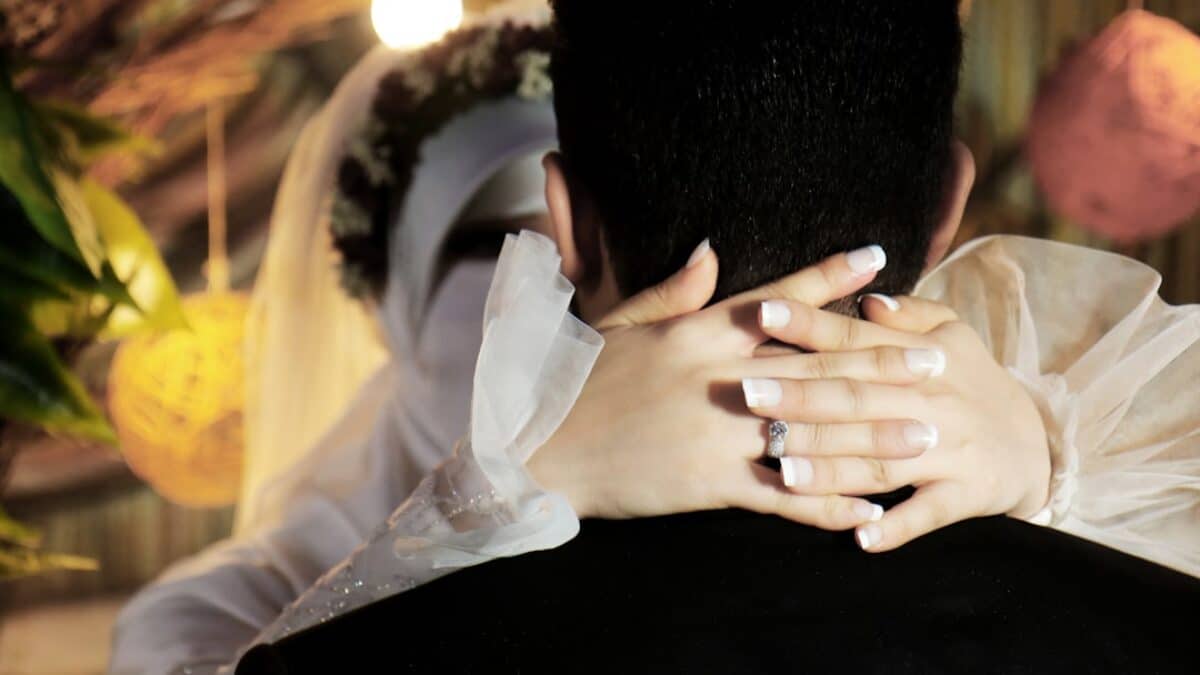As the day winds down and the final Maghrib call to prayer fades into the quiet of night, the Muslim household begins its most intimate spiritual routine—preparing for sleep. In Islam, bedtime is not merely the end of physical activity; it is a sacred transition from the realm of the seen to the realm of the unseen, where the soul is most vulnerable and most receptive to divine protection. The Prophet Muhammad ﷺ taught his followers a treasury of duas for protection during sleep, concise yet profound Arabic invocations that serve as spiritual armor against nightmares, the whispers of Shaytan, and the unseen harms that may lurk in darkness.
From the youngest child learning to lisp “Bismika Allahumma” to the elderly who recite entire chapters of the Qur’an, these bedtime prayers weave a seamless fabric of taqwa (God-consciousness) into the final moments of consciousness. This article offers a comprehensive guide to these powerful supplications—what they mean, how to recite them, why they matter—so that every believer can lie down in peace, trusting that divine mercy encircles them until the break of dawn.
Understanding the Islamic Perspective on Sleep and Vulnerability
The Spiritual Significance of Sleep in Islam
In the Qur’an, Allah describes sleep as a miraculous sign (āyah) of His creative power:
“And among His signs is your sleep by night and by day…” (Surah Ar-Rum 30:23)
This verse reminds us that sleep itself is an act of worship when accompanied by the right intention. By consciously entrusting our body and soul to Allah, we mirror the surrender (Islām) that defines our relationship with the Creator. The Prophet ﷺ reinforced this link by teaching specific duas to be recited when lying on the right side, facing the Qibla, and recalling Allah’s names—rituals that transform a passive state into active remembrance.
Why Nighttime Is a Time of Increased Vulnerability
Islamic tradition recognizes that the veil between the physical and spiritual worlds grows thin during sleep. Several ḥadīth mention that:
- Shaytan ties knots on the head of anyone who neglects to mention Allah upon lying down.
- Jinn and devils roam more freely under the cover of night.
- Dreams can become channels for divine guidance or satanic whispers.
Consequently, bedtime supplications are not optional extras but essential safeguards—spiritual inoculations against unseen threats. They act like a night watchman who patrols the perimeter of the soul, ensuring that only what is pure enters the subconscious.
Key Components of the Bedtime Adhkār (Remembrances)
The Core Duas: Arabic Text, Transliteration, and Meaning
The Sunnah outlines a sequence of remembrances (adhkār) that begins the moment one decides to retire. Below are the most rigorously authenticated duas, arranged in the recommended order:
1. Bismika Allahumma – In Your Name, O Allah
Arabic: بِسْمِكَ اللَّهُمَّ أَمُوتُ وَأَحْيَا
Transliteration: Bismika Allahumma amūtu wa aḥyā.
Translation: “In Your name, O Allah, I die and I live.”
This concise dua is to be said immediately upon lying down. It mirrors the cycle of daily life—sleep as a minor death, awakening as a minor resurrection—and places both events under divine authority.
2. Ayat al-Kursī – The Throne Verse
Location: Surah Al-Baqarah 2:255
Virtue: The Prophet ﷺ declared, “Whoever recites Ayat al-Kursī after every prescribed prayer, nothing prevents him from entering Paradise except death.” (Bukhari)
Bedtime Role: Acts as a protective shield; no evil approaches the reciter until morning.
3. The Three Quls: Al-Ikhlāṣ, Al-Falaq, and An-Nās
These three short chapters are recited three times each:
- Al-Ikhlāṣ – Declares Allah’s absolute oneness, severing any attachment to false deities.
- Al-Falaq – Seeks refuge from external harms: darkness, sorcery, envy.
- An-Nās – Seeks refuge from internal harms: the whisperings of Shaytan within the self.
4. Dhikr of Spitting Lightly and Wiping the Face
After reciting the three Quls, the Prophet ﷺ would spit lightly over his left shoulder three times and then wipe his hands over his face and body, symbolically pushing away evil forces. While this act may sound unusual to modern ears, it is deeply rooted in prophetic practice and underscores the tactile, physical nature of Islamic worship.
Additional Sunnah Practices for a Protected Sleep
- Wuḍūʾ Before Bed: Maintains ritual purity and creates a barrier between the believer and impurity.
- Sleeping on the Right Side: Physiological benefits aside, it aligns the heart toward the Kaaba, reinforcing qibla-consciousness.
- Reciting Surah Al-Mulk: The Prophet ﷺ said, “There is a surah in the Qur’an which contains thirty verses that intercede for a man until his sins are forgiven—Surah Al-Mulk.” (Tirmidhī)
Benefits and Importance of Reciting Bedtime Duas
Psychological Tranquility and Stress Reduction
Modern neuroscience corroborates what the Sunnah has long prescribed: intentional spiritual practice before bed lowers cortisol levels and reduces anxiety. When we verbalize our vulnerability to Allah—saying “I die and I live in Your name”—we offload existential fears onto the One who can truly manage them. Studies on mindfulness in Islamic prayer (Smith et al., 2025) show that the rhythmic repetition of Qur’anic verses activates the parasympathetic nervous system, ushering in physiological rest that mirrors spiritual surrender.
Protection from Nightmares and Sleep Disorders
While medical causes of insomnia should always be investigated, many Muslims report that consistent recitation of the three Quls significantly reduces nightmares. The Prophet ﷺ said, “When you go to bed, recite Qul Aʿūdhu birabbi-l-falaq, for no one recites it in his house except that no evil comes near it until morning.” (Tirmidhī)
Strengthening One’s Relationship with Allah
Bedtime adhkār are private conversations with the Divine. Unlike congregational prayers, they are whispered in the quiet of one’s heart, creating intimate moments of dependency that nurture muḥabbah (love) and khawf (reverent fear). Over time, these nightly invocations rewire the subconscious to default to Allah’s remembrance even in dreams.
Practical Applications: A Step-by-Step Nighttime Routine
Creating a Sacred Sleep Environment
Before the tongue utters the first dua, the space itself must be prepared:
- Switch Off Screens 30 Minutes Before Bed: Blue light disrupts melatonin; replace scrolling with Qur’an or adhkār cards.
- Dim the Lights: Mimics the natural setting of the sun and signals the brain to wind down.
- Fragrance with ʿūd or Musk: The Prophet ﷺ loved pleasant fragrances; scent is a Sunnah that enhances khushūʿ.
A 5-Minute Guided Routine
Minute 1: Make wudūʾ, even if already in a state of purity, to refresh the intention.
Minute 2: Lie on the right side, facing the Qibla, and recite:
- Bismika Allahumma amūtu wa aḥyā (1×)
- Ayat al-Kursī (1×)
Minute 3: Recite the three Quls three times each, blowing lightly into cupped hands and wiping over the body after each round.
Minute 4: Make personal duʿāʾ for family, health, and ākhirah.
Minute 5: End with salawaat upon the Prophet ﷺ and Al-ḥamdu lillāh.
Teaching Children the Routine
Children learn best through modeling and repetition. Consider these techniques:
- Laminated Cards: Picture-based adhkār cards placed on the bedside table.
- Bedtime Story + Dua: After reading a Sirah story, recite the Quls together.
- Reward Chart: Sticker for every night they complete the routine independently.
Frequently Asked Questions
What if I forget to recite the duas before falling asleep?
Islam is a religion of ease, not hardship. If you wake up during the night, you may still recite the adhkār then. The Prophet ﷺ said, “Whoever sleeps without reciting Ayat al-Kursī and then recites it upon waking, it will be for him as if he recited it before sleep.” (Abu Dawud) However, cultivating habitual consciousness is the goal, so set a nightly phone alarm labeled “Adhkār Time” if necessary.
Can women recite these duas during menstruation?
Yes. While women in menstruation are exempt from ritual prayer, they are encouraged to engage in dhikr and duʿāʾ at any time. The adhkār are remembrances, not ritual worship, so there is no restriction.
Is it necessary to understand Arabic to benefit?
Understanding magnifies the impact, but the reward is still immense for those reciting in Arabic. Meanwhile, learning the meaning alongside the sound creates double-barreled spirituality—sound waves that resonate in the cosmos and meanings that resonate in the heart. Use bilingual cards or apps like Ayat to bridge the language gap.
How do I balance between recitation and sleep when extremely tired?
The Prophet ﷺ gave concession to the exhausted traveler: “If one of you is extremely tired, let him sleep until his fatigue is gone, then recite what he missed.” (Muslim) Quality sleep is itself a niʿmah (blessing), so prioritize rest when necessary,
























Post Comment